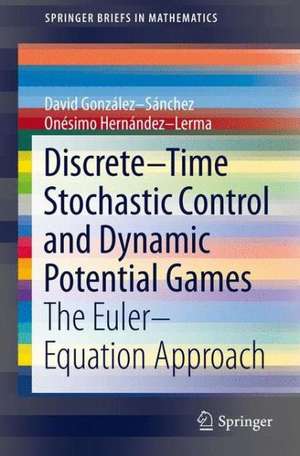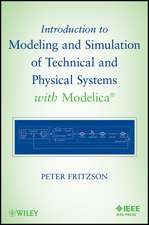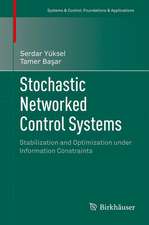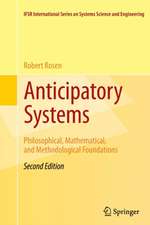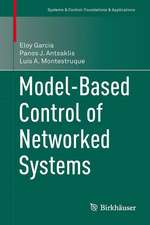Discrete–Time Stochastic Control and Dynamic Potential Games: The Euler–Equation Approach: SpringerBriefs in Mathematics
Autor David González-Sánchez, Onésimo Hernández-Lermaen Limba Engleză Paperback – 2 oct 2013
Din seria SpringerBriefs in Mathematics
-
 Preț: 380.25 lei
Preț: 380.25 lei -
 Preț: 380.84 lei
Preț: 380.84 lei -
 Preț: 380.29 lei
Preț: 380.29 lei -
 Preț: 383.93 lei
Preț: 383.93 lei -
 Preț: 350.11 lei
Preț: 350.11 lei -
 Preț: 352.28 lei
Preț: 352.28 lei -
 Preț: 351.57 lei
Preț: 351.57 lei -
 Preț: 378.92 lei
Preț: 378.92 lei -
 Preț: 341.60 lei
Preț: 341.60 lei - 20%
 Preț: 388.19 lei
Preț: 388.19 lei -
 Preț: 379.48 lei
Preț: 379.48 lei -
 Preț: 446.65 lei
Preț: 446.65 lei -
 Preț: 351.57 lei
Preț: 351.57 lei - 15%
 Preț: 463.68 lei
Preț: 463.68 lei -
 Preț: 377.95 lei
Preț: 377.95 lei -
 Preț: 378.12 lei
Preț: 378.12 lei -
 Preț: 352.28 lei
Preț: 352.28 lei -
 Preț: 379.68 lei
Preț: 379.68 lei -
 Preț: 376.80 lei
Preț: 376.80 lei -
 Preț: 351.90 lei
Preț: 351.90 lei -
 Preț: 380.07 lei
Preț: 380.07 lei -
 Preț: 352.28 lei
Preț: 352.28 lei -
 Preț: 350.81 lei
Preț: 350.81 lei -
 Preț: 343.72 lei
Preț: 343.72 lei -
 Preț: 349.41 lei
Preț: 349.41 lei - 15%
 Preț: 464.18 lei
Preț: 464.18 lei -
 Preț: 351.90 lei
Preț: 351.90 lei - 15%
 Preț: 464.32 lei
Preț: 464.32 lei -
 Preț: 381.00 lei
Preț: 381.00 lei -
 Preț: 344.47 lei
Preț: 344.47 lei - 15%
 Preț: 462.19 lei
Preț: 462.19 lei -
 Preț: 377.18 lei
Preț: 377.18 lei -
 Preț: 378.34 lei
Preț: 378.34 lei -
 Preț: 345.45 lei
Preț: 345.45 lei -
 Preț: 355.76 lei
Preț: 355.76 lei - 20%
 Preț: 352.85 lei
Preț: 352.85 lei -
 Preț: 453.17 lei
Preț: 453.17 lei -
 Preț: 380.45 lei
Preț: 380.45 lei -
 Preț: 377.95 lei
Preț: 377.95 lei -
 Preț: 562.34 lei
Preț: 562.34 lei - 15%
 Preț: 461.73 lei
Preț: 461.73 lei -
 Preț: 379.68 lei
Preț: 379.68 lei -
 Preț: 379.68 lei
Preț: 379.68 lei -
 Preț: 411.36 lei
Preț: 411.36 lei -
 Preț: 343.72 lei
Preț: 343.72 lei -
 Preț: 350.11 lei
Preț: 350.11 lei -
 Preț: 448.21 lei
Preț: 448.21 lei -
 Preț: 378.92 lei
Preț: 378.92 lei -
 Preț: 344.86 lei
Preț: 344.86 lei
Preț: 343.00 lei
Nou
Puncte Express: 515
Preț estimativ în valută:
65.65€ • 71.34$ • 55.18£
65.65€ • 71.34$ • 55.18£
Carte tipărită la comandă
Livrare economică 22 aprilie-06 mai
Preluare comenzi: 021 569.72.76
Specificații
ISBN-13: 9783319010588
ISBN-10: 3319010581
Pagini: 84
Ilustrații: XIV, 69 p.
Dimensiuni: 155 x 235 x 4 mm
Greutate: 0.14 kg
Ediția:2013
Editura: Springer International Publishing
Colecția Springer
Seria SpringerBriefs in Mathematics
Locul publicării:Cham, Switzerland
ISBN-10: 3319010581
Pagini: 84
Ilustrații: XIV, 69 p.
Dimensiuni: 155 x 235 x 4 mm
Greutate: 0.14 kg
Ediția:2013
Editura: Springer International Publishing
Colecția Springer
Seria SpringerBriefs in Mathematics
Locul publicării:Cham, Switzerland
Public țintă
ResearchCuprins
Introduction and summary.- Direct problem: the Euler equation approach.- The inverse optimal control problem.- Dynamic games.- Conclusion.- References.- Index
Notă biografică
David Gonzalez–Sanchez is Assistant Professor at ITAM Mathematics Department,Mexico City, Mexico.Onesimo Hernandez–Lerma is Professor and Chair, CINVESTAV–IPN MathematicsDepartment, Mexico City, Mexico.
Caracteristici
Presents a systematic, comprehensive, self-contained analysis of dynamic potential games, which appears for the first time in book form? Reader-friendly, at a graduate student level Substantial number of examples and applications, mainly from mathematical economics Includes supplementary material: sn.pub/extras
